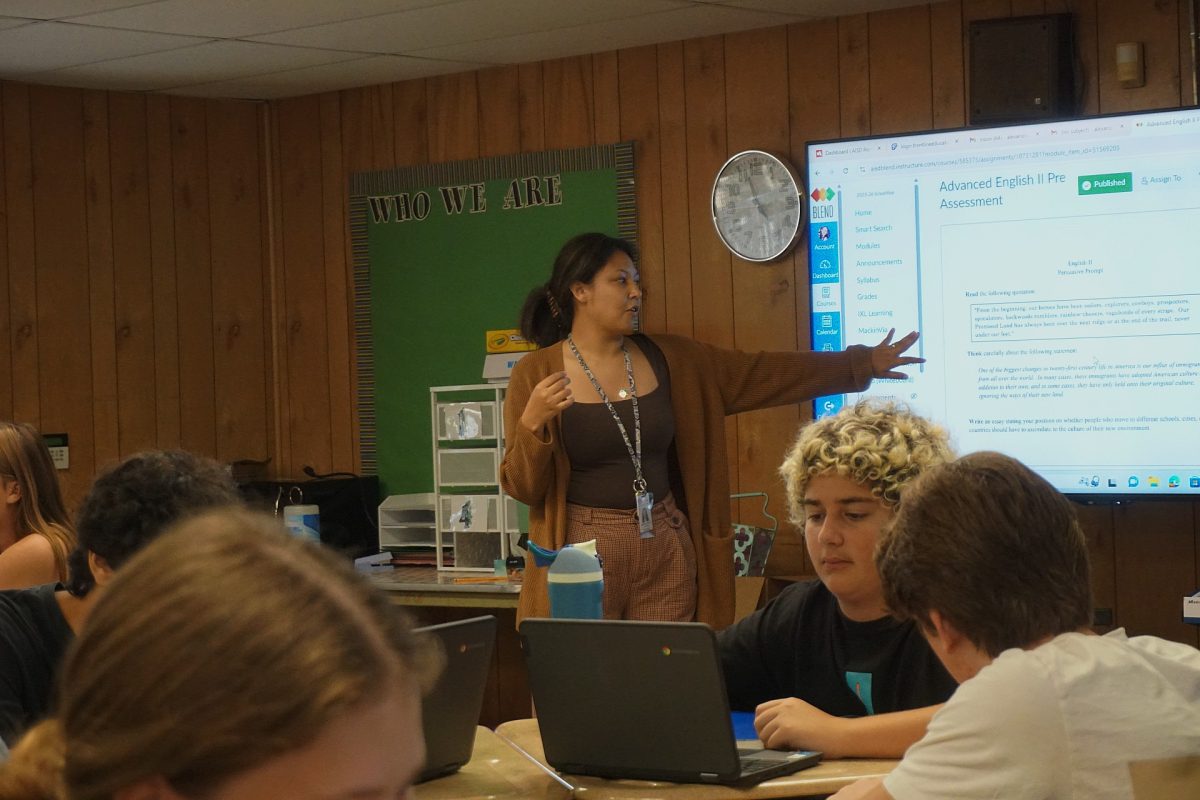In one of the latest developments in Texas education policies, two new proposed laws, Senate bills 10 and 12, have created a clash between lawmakers, educators, parents and students. Senate bill 10 mandates a poster of the Ten Commandments to be visible in all public schools, and Senate bill 12 creates stronger regulations on student choice by enabling more parental involvement in student life.
SB 10 was originally introduced to the Texas Senate by state Sen. Phil King, R-Weatherford, on Feb. 10. The Texas Senate passed the bill on March 19 with a 20-11 vote. The bill was then sent to the Texas House of Representatives, which approved the bill with an amendment stating that the state, instead of individual school districts, would take responsibility for any legal challenges. The Texas Senate agreed with the amendment, and the bill was passed to Gov. Greg Abbott, R-Texas, who signed it on June 21.
According to Texas Legislature Online, the bill specifies that the poster must be a 16×20-inch copy of the English translation of the Ten Commandments and must be placed in a noticeable location in every public school classroom.
On July 2, 16 families represented by several civil liberty organizations, including the American Civil Liberties Union, filed a lawsuit against SB 10, which was scheduled to become active on Sept. 1. This lawsuit was presented to U.S. District Judge Fred Biery on Aug. 20, who blocked the initiation of the law, arguing that it violated the First Amendment and the separation of church and state. The legal challenge is ongoing, and the fate of the law is uncertain. However, the ruling immediately prevented the Ten Commandments from being displayed in Texas public schools.
Greg Anderson, social sciences teacher at McCallum High School, believes that some students support this block as they may feel uncomfortable or unrecognized in a classroom setting with unfamiliar religious laws posted.
“Besides it being a First Amendment issue, for students who do not subscribe to that particular faith, it might feel like they’re not being represented, or in some sense, being shamed for not subscribing to said faith,” Anderson said. “Some might not even care at all, but some others might feel that, ‘Hey, where are my religious rules? Where’s [the] representation of my faith? Why am I being excluded? Why am I being subjected to somebody else’s religion and mine’s not present?’ ”
Anderson understands the different opinions that have arisen surrounding SB 10. From his view as an educator, Anderson has been able to gain insight from the staff, students, and other teachers who could have been affected by the law. He states that no matter the outcome of the law, public perception of Texas education has shifted, depending on personal beliefs.
SB 12, known as the “Texas Parental Bill of Rights,” authored by Sen. Brandon Creighton, R-Conroe, was also challenged by the ACLU for violating the First Amendment. However, this bill became effective on Sept. 1 after the Texas Senate passed SB 12 on March 19, the Texas House of Representatives passed the bill on May 24, and Gov. Greg Abbott signed the bill on June 20.
The Texas Parental Bill of Rights expands parental oversight of student decisions in a school environment. The bill bans diversity, equity and inclusion organizations and practices; requires written parent or guardian consent for sex education, non-emergency health care consultations and participation in clubs; enforces participation in sports based on biological gender; and refocuses the curriculum on core subjects and U.S. founding documents for K-12 public schools.
Senior Olivia Pittman, student body president of McCallum, believes that SB 12 has a possible negative impact on McCallum as it could lower club engagement and participation, as well as fully limit the start-up or continuation of certain organizations.
“I was super shocked about this law,” Pittman said. “McCallum is such an inclusive community and really focused on diversity, so I knew that this law could be potentially detrimental to a lot of the communities that have been built up.”
Being a leader of the McCallum community has caused some challenges for Pittman. She stated that much of the student body was also generally shocked by the law, and it has caused organizations to have trouble with promotion, creating some hurdles for many students and clubs.
“At McCallum, we’re still trying to keep the inclusion and diversity,” Pittman said. “Unfortunately, this legislation could hold some people back from being able to join organizations they would like to support.”
McCallum’s head nurse, Amanda Rose, is also directly impacted by SB 12. According to Rose, the biggest alteration to the nurse’s office is that students are not allowed to be treated or contacted by Rose if parents have not opted in. Instead, the student would have to contact their parents through the front office to come pick them up, which ultimately delays care. In life-threatening situations, Rose is able to provide assistance regardless of having parental consent, but for minor medical injuries or routine first aid, Rose is unable to help students without a parental consent form. Rose highly encouraged all parents or guardians to opt-in students for medical care out of sympathy for student safety.
“My concern is the kids,” Rose said. “My job is making sure that they have a safe and healthy environment, and I would like to be able to continue providing that for them.”
SB 10 and SB 12 have caused challenges in many public schools across Texas. While it’s still unclear whether SB 10 will be imposed, both bills have staff and students at McCallum learning how to navigate educational systems, club accessibility, medical protocols and religious beliefs in a school environment.








